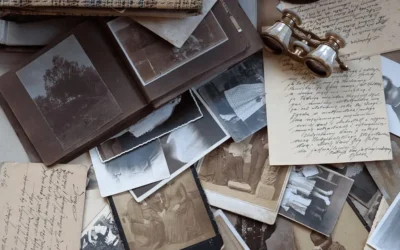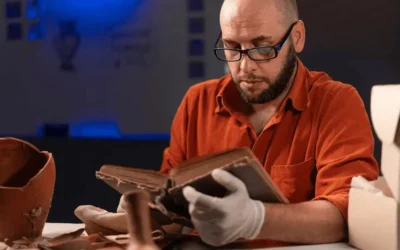Archiving University Functions
Margot Note
University archives are indispensable in stewarding and preserving historical records.
These materials are related to the seven core functions outlined in Helen Willa Samuels’ seminal work, Varsity Letters: Documenting Modern Colleges and Universities.
Her book examines the seven fundamental roles of contemporary colleges and universities: credentialing, knowledge dissemination, socialization, research, institutional sustainability, public service, and cultural promotion. For each of these roles, Samuels’ outlines the challenges related to documentation, the objectives to achieve, the sources of relevant information, and the criteria for deciding what should be preserved. Samuels promotes a systematic approach to crafting an institutional documentation plan representing educational institutions’ rich history and cultural significance for the following functions:
Confer Credentials
University archives maintain records related to the admission process, including application materials, acceptance letters, and admission policies. This action helps preserve the history of how students were selected and admitted.
Archives can house records of graduation ceremonies, diplomas, and academic transcripts, ensuring the documentation of students’ educational journeys.
Convey Knowledge
Archives preserve past course catalogs, syllabi, and curriculum development materials. Doing so provides insights into how academic programs have evolved.
Stewarding faculty publications and research outputs highlights the knowledge dissemination aspect of the university’s mission.
Foster Socialization
Archives collect materials related to student clubs, organizations, and extracurricular activities to document the social and cultural life of the campus.
Maintaining records of the commuter experience, student publications, and campus events contributes to the history of student socialization.
Conduct Research
University archives house the research papers, lab notes, and publications of faculty members, showcasing the institution’s contributions to research and knowledge creation.
Archiving grant proposals and research funding documentation illustrates the university’s commitment to supporting research activities.
Sustain the Institution
Archives preserve institutional governance documents, including meeting minutes, policies, and strategic plans, demonstrating how the university is managed and governed.
Maintaining financial records and budgets helps track the financial health and stability of the institution over time.
Provide Public Service
Archives document the university’s community outreach and public service efforts, such as workshops, seminars, and partnerships with local organizations.
Stewarding materials related to continuing education programs, workshops, and professional development courses reflects the institution’s commitment to serving the broader community.
Promote Culture
University archives often include special collections related to the cultural and historical aspects of the institution and its surrounding community. These collections can encompass manuscripts, rare books, and artifacts.
Archiving materials related to museum exhibits and cultural events the university hosts promotes its cultural and artistic contributions.
Documentating It All
Archives act as custodians of institutional memory, offering a treasure trove of resources that contribute to each function. For instance, university archives maintain records of board meetings, charters, and policies in governance, ensuring transparency and accountability. They safeguard faculty and academic records, supporting the academic function by providing a rich source of curricular developments and scholarly achievements. University archives also document the institution’s role in research and innovation by preserving research materials and publications. Archives house administrative records, demonstrating the institution’s growth and adaptability. Archives also facilitate community engagement by keeping materials related to alums, outreach programs, and community partnerships. In the cultural and societal context, university archives capture the institution’s role in shaping society through materials that reflect its contributions to culture, activism, and social progress. University archives are the stewards of an institution’s multifaceted history, enriching and supporting its core functions across the academic spectrum.
University archives serve as repositories of institutional memory, preserving records and materials related to the diverse functions of a university. By collecting, organizing, and providing access to these materials, archives contribute to understanding the history of colleges and universities and their role in education, research, and community engagement.
Never miss another post. Subscribe today!
Similar Posts
Texas Archive of the Moving Image: Interview with the Digital Archivist
I recently interviewed Grace Muñoz about her work at the Texas Archive of the Moving Image. Her work on improving the discoverability of the multimedia collection is fascinating.
How to Conduct Comprehensive Archival Surveys
Conducting a comprehensive archival survey is critical to successfully managing archival collections.
Remembering History, Moving Forward Together, with ArchivEra
The Catholic Diocese of Arlington’s Director of Archives selected ArchivEra to manage their collections of historical and cultural significance, and strike a balance between security and access.
Unveiling Archival Impact
The transformative power of storytelling depends upon the strategic choices that top archival performers make and the shift from being record-keepers to change agents.




Leave a Comment
Comments are reviewed and must adhere to our comments policy.
0 Comments